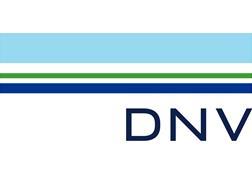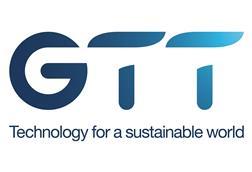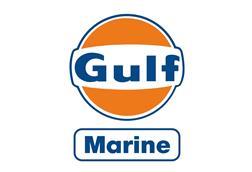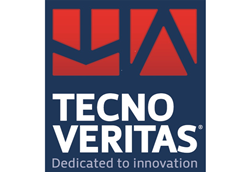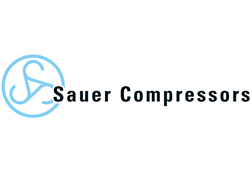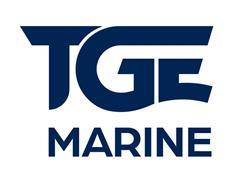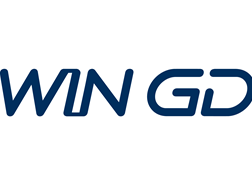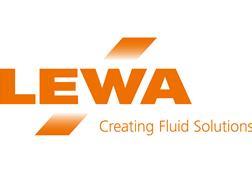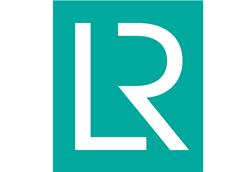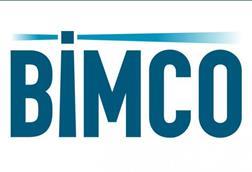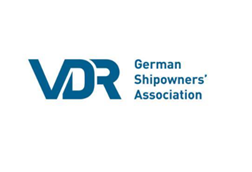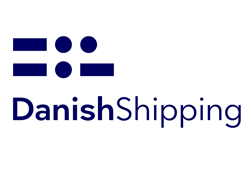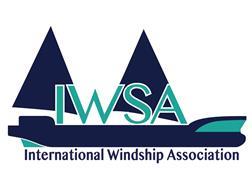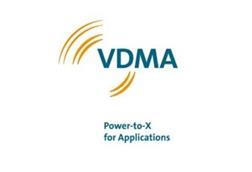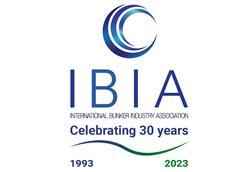The Propulsion & Future Fuels 2024 Conference Programme
Powering shipping’s emission-cutting ambitions
Propulsion stream | Alternative Fuel Stream | Technical visit
The two day conference commenced with a keynote panel focused on EU Regulatory Requirements and the Emerging Market for Carbon Capture, followed by sessions that explore LNG Slip Reductions and advances in engine performance, safety challenges with new technology and the shortlisted nominations for the Motorship Awards. The streamed sessions on day 2 explore the specific challenges with bio-fuels operational experience for 2-stroke and 4-stroke engines, ammonia, methanol, liquefied hydrogen, retrofit solutions, wind propulsion and carbon capture. Providing industry leaders with a space to network and knowledge share.
Day 1 - Tuesday 19th November 2024
| 08:00 | Coffee & Registation |
|---|---|
|
09:00 |
Chairmen’s Welcome |
|
09:10 |
Gold Sponsor Welcome |
|
09:20 |
Keynote Panel: EU Regulatory Requirements and the Emerging Market for Carbon Capture: Challenges and Opportunities |
|
Moderator: |
Lars Robert Pedersen, Deputy Secretary General, BIMCO |
|
10:30 – 10:50 |
Coffee & Networking |
|
Session 1 |
Methanol: Lessons Learned from Expansion of Vessels Operating on Methanol |
|
Moderator: |
Dr. Markus Münz, Managing Director, VDMA Large Engines |
|
10:50-11:05 |
Realizing the Methanol-Vision within MPC Container Ships |
|
11:05-11:20 |
Methanol as a Marine Fuel |
|
11:20-11:35 |
Methanol Superstorage as a shipboard solution |
|
11:35-11:50 |
Cylinder Oil Reuse: A Breakthrough in Marine Engineering |
|
11:50-12:10 |
Q&A |
|
12:10-13:40 |
Lunch & Networking |
|
Session 2 |
LNG: Methane Slip Reductions, Advances in Engine Performance |
|
Moderator: |
Lars Robert Pedersen, Deputy Secretary General, BIMCO |
|
13:40-13:55 |
Groundbreaking Innovations for Decarbonizing Shipping Today |
|
13:55-14:10 |
Methane mitigation technologies for X-DF engines: Updates and Experiences |
|
14:10-14:25 |
LNG Fuelled Vessels |
|
14:25-14:40 |
Methane Abatement in Maritime Innovation initiative (MAMII) |
|
14:40-15:00 |
Q&A |
|
15:00-15:30 |
Coffee and Networking |
|
Session 3 |
The Motorship Awards |
|
15:30-15:45
15:45-16:00
16:00-16:15
16:15-16:50 |
Anemoi and Lloyd’s Register ABB Bound4Blue |
|
16:50 |
Conference Wrap Up & Close |
|
18:30 |
Conference Dinner
|
Day 2 Wednesday 20th November 2024
| 08:30 | Coffee Registration |
|---|---|
|
09:00-09:15 |
Recap of Day 1 by Chairmen |
|
Session 4 |
Panel Discussion: Bio-Fuels: Operational Experience for 2-Stroke and 4-Stroke Engines |
|
Moderator |
Lars Robert Pedersen, Deputy Secretary General, BIMCO |
|
09:15-09:30 |
Bio-Fuels - the operational challenges |
|
09:30-09:45 |
Decarbonisation of the Existing Fleet, a new biofuel application BioHFO |
|
09:45-10:00 |
Drop-in(g) biofuels on cruise ships |
|
10:00-10:15 |
Biofuels onboard - user experiences |
|
10:15-10:35 |
Q&A |
|
10:35-10:55 |
Coffee & Networking |
Session 5.1 Retrofit
| 10:55-12:15 | Session 5.1 Retrofit |
|---|---|
|
Moderator |
Philipp Simmank, Technical Advisor, VDR – German Shipowners‘ Association |
|
10:55-11:10 |
Fleet Upgrade and Green Recycling |
|
11:10-11:25 |
Accelleron’s Engine Part Load Optimization |
|
11:25-11:40 |
Avoiding Overconsumption |
|
11:40-11:55 |
The role of Retrofitabillity to the Decarb transition of the shipping industry – Challenges and opportunities at hand |
|
11:55-12:15 |
Q&A |
|
12:15-13:45 |
Lunch & Networking |
Session 5.2 Hydrogen
| 10:55-12:15 | Session 5.2 Hydrogen: Internal CombustionEngine (ICE) and Fuel Cell Advances |
|---|---|
|
Moderator |
Dr. Markus Münz, Managing Director, VDMA Large Engines |
|
10:55-11:10 |
Hydrogen installations on board passenger ships |
|
11:10-11:25 |
Challenges of hydrogen fuel cell system integration in maritime |
|
11:25-11:40 |
Making green logistics easy |
|
11:40-11:55 |
Delivering the UK’s First Hydrogen APU Sea Trials: A Breakthrough in Maritime Decarbonization |
|
11:55-12:15 |
Q&A |
|
12:15-13:45 |
Lunch & Networking |
Session 6.1 Ammonia
| 13:45-15:05 | Session 6.1 Ammonia: Challenges and Solutions(fuel supply, after treatment, new engines,pollution control, fuel tanks) |
|---|---|
|
Moderator |
Lars Robert Pedersen, Deputy Secretary General, BIMCO |
|
13:45-14:05 |
Moving big things to zero: Ammonia two-stroke engine development. |
|
14:05-14:25 |
Innovative solutions enabling safe and efficient use of ammonia |
|
14:25-:14:45 |
Lubricants Enabling Alternative Fuels for Maritime Decarbonization |
|
14:45-15:05 |
Q&A |
|
15:05-15:35 |
Coffee & Networking |
Session 6.2 Wind Propulsion
| 13:45-15:05 | Session 6.2 Wind Propulsion |
|---|---|
|
Moderator |
Gavin Allwright, Secretary General, IWSA |
|
13:45-14:00 |
Taking fuel savings to the next level with integrated wind solutions |
|
14:00-14:15 |
Wind assisted propulsion systems; class perspective and class services |
|
14:15-14:30 |
Oceanbird Wing 560 – bringing sailing back to shipping |
|
14:30-14:45 |
Decarbonizing long distance shipping with alternative fuels, technology synergy and digital design |
|
14:45-15:05 |
Q&A |
|
15:05-15:35 |
Coffee & Networking |
Session 7.1 Carbon Capture
| 15:35-16:55 | Session 7.1 Carbon Capture: Emission Reduction, Findings and New Projects |
|---|---|
|
Moderator |
Dr. Markus Münz, Managing Director, VDMA Large Engines |
|
15:35-15:50 |
How maritime carbon capture and storage will play a crucial role in reducing shipping’s CO2 emissions. |
|
15:50-16:05 |
Onboard Carbon Capture and Storage (OCCS) – The Emerging Regulatory Landscape |
|
16:05-16:20 |
Onboard carbon capture utilization and storage, for vessels and offshore applications. |
|
16:20-16:35 |
Navigating Onboard Carbon Capture: Technologies, Feasibility and Regulations. |
|
16:35 -16:55 |
Q&A |
Session 7.2 Crew Training for new fuels
| 15:35-16:55 | Session 7.2 Crew Training for new fuels |
|---|---|
|
Moderator |
Gavin Allwright, Secretary General, IWSA |
|
15:35-15:55 |
Methanol as a Marine Fuel - Training |
|
15:55-16:15 |
Odd Rune Malterud, Assistant Director & Technical Manager, Norwegian Union of Marine Engineers |
|
16:15-16:35 |
Ready for Safe operations with new fuels – the impact on seafarers, personnel ashore and shipowner’s organizations |
|
16:35-16:55 |
Q&A |
Conference Wrap up
| 16:55-17:10 | Conference Wrap up with Moderators and Chairmen |
|---|---|
|
Lars Robert Pedersen, Deputy Secretary General, BIMCO Dr. Markus Munz, Managing Director, VDMA Large Engines Gavin Allwright, Secretary General, IWSA Philipp Simmank, Technical Advisor, VDR – German Shipowners‘ Association |
|
|
17:10 |
Conference Close |
DAY THREE - THURSDAY 21 NOVEMBER 2024 TECHNICAL VISIT
Digital Twins
Hosted by DNV
2024 CONFERENCE FEEs
Cost per delegate Premium rate €2,600/£2,205
Premium includes:
* Conference Attendance with lunch and refreshments on both days.
* Full documentation in electronic format
* Place at conference dinner (19 November 2024)
* Place at technical visit (21 Novermber 2024)
Cost per delegate Standard rate €2,500/£2100
* Group booking discounts available
* Special rates available for recognised educational establishments & ship operators.
Please Contact us for details.
BOOKING ONLINE
Alternatively, you can call us on +44 1329 825335
On receipt of your registration, you will be sent confirmation of your delegate place.
CONTACT US
For further information on exhibiting, sponsoring, or attending the conference, contact the Events team on: +44 1329 825335 or email conferences@propulsionconference.com.
- Previous
- Next
- Previous
- Next

